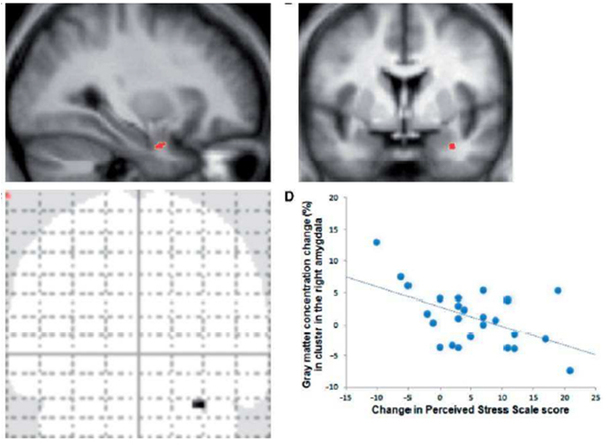Oxford China Academics
Oxford In China > Oxford China Academics > Mark Williams
Wake up to the patterns of your mind
Professor Mark Williams, Professor of Clinical Psychology and Director of the Oxford Mindfulness Centre, explains the science behind mindfulness.

Professor Mark Williams is Professor of Psychology and Director of the Oxford Mindfulness Centre at the University of Oxford. He is a fellow at Linacre College, an honorary fellow at St Peters and honorary canon at Christ Church.
Prof. Williams will be delivering the talk ‘Out of the Box: Mindfulness and the science of meditation’ at Asia Society Hong Kong Centre on Wednesday 5 June, where his latest book, ‘Mindfulness: A Practical Guide to finding peace in a frantic world,’ will be on sale in their English and Chinese editions.
To find out more about mindfulness, visit the Oxford Mindfulness Centre’s YouTube channel.
Prof. Williams will be delivering the talk ‘Out of the Box: Mindfulness and the science of meditation’ at Asia Society Hong Kong Centre on Wednesday 5 June, where his latest book, ‘Mindfulness: A Practical Guide to finding peace in a frantic world,’ will be on sale in their English and Chinese editions.
To find out more about mindfulness, visit the Oxford Mindfulness Centre’s YouTube channel.
There is nothing more interesting than the human mind; and nothing quite so tragic when it goes wrong. Depression is a serious illness and afflicts around 121 million worldwide and has devastating results – it lowers mood, saps energy and reduces the will to live. According to the World Health Organisation, it is the leading cause of years lost to disability. The most common age to experience a first serious episode of depression is now between 13 – 15 years. The more often depression has occurred in the past, the more easily it can be triggered in the future. Long term studies show that, over a lifetime, sufferers find that they are stuck in episodes of depression for 32% of the time: four months of each year are lost to depression.
The path to freedom
Mindfulness is the translation of an ancient Indian word meaning awareness. The methods used to cultivate mindfulness were first recorded over two thousand years ago. It has long been central to wisdom traditions in Asia, particularly the Buddhist tradition, but the art of cultivating inner stillness has been a central part of all religious traditions across the ages.
Mindfulness meditation is a secular form of this tradition that anyone can learn. It trains us to pay deliberate attention to our experience, both external and internal. We learn to focus on what is happening from moment to moment with full intention and without judgment. Mindfulness is the awareness that emerges through such training, and the skill of developing and sustaining that awareness.
The path to freedom
Mindfulness is the translation of an ancient Indian word meaning awareness. The methods used to cultivate mindfulness were first recorded over two thousand years ago. It has long been central to wisdom traditions in Asia, particularly the Buddhist tradition, but the art of cultivating inner stillness has been a central part of all religious traditions across the ages.
Mindfulness meditation is a secular form of this tradition that anyone can learn. It trains us to pay deliberate attention to our experience, both external and internal. We learn to focus on what is happening from moment to moment with full intention and without judgment. Mindfulness is the awareness that emerges through such training, and the skill of developing and sustaining that awareness.
|
Mindfulness based cognitive therapy and preventing depression
Mark Williams, Professor of Clinical Psychology at the University of Oxford and Director of the Oxford Mindfulness Centre, co-developed the Mindfulness Based Cognitive Therapy (MBCT) and is the co-author of international best-seller The Mindful Way Through Depression, and Mindfulness: a Practical Guide to Finding Peace in a Frantic World, his latest book which has been translated into Chinese. In the late 1970s, Jon Kabat Zinn’s pioneering research into Mindfulness Based Stress Reduction (MBSR) found remarkable effects on chronic pain and stress. Prof. Williams and his colleagues first became interested in mindfulness from a clinical point of view because he wanted to help people cope with new episodes of depression, although initially, like many others, he was cautious about how people would react to something that had been a part of traditional religious practice in Asia. “What Jon Kabat Zinn did was to provide a secular vehicle for Mindfulness,’ said Prof Williams, ‘so even skeptics can leave behind the religion and participate in this training that can help them become more focused and concentrate. In the past, cognitive therapy and anti-depressants would help lift you out of your current state of depression, but they can’t help you, when you’re well, to learn to defend yourself against new episodes of depression.” |
To test his hypothesis that Mindfulness could help prevent recurrent depression, Prof. Williams and his colleagues created the eight-week Mindfulness Based Cognitive Therapy (MBCT) programme. During the programme, patients would follow his instructions for meditation and slowly build up the length of time that they are able to meditate for. ‘The technique is not about attaining an altered state of consciousness but simply about centering and focusing oneself in order to cope with whatever difficulty, stress or depressive state one is encountering.’ Six trials – carried out all over the world – have since evaluated MBCT in depression. The results are striking. In patients with three or more previous episodes of depression, MBCT reduces the recurrence rate over 12 months by 40-50% compared with usual care, and has proved to be as effective as maintenance antidepressants in preventing new episodes of depression. This breakthrough was a milestone in the field of mental health. A cost-effective way of reducing the risk of depression without relying on medication has enormous potential.
In the past 20 years, mindfulness has become part of mainstream evidence-based psychological treatments. The UK’s National Institute for Clinical Excellence has recommended it as a cost-effective treatment for preventing relapse in depression. Other research has found that MBCT reduces anxiety in people suffering from General Anxiety and Bipolar Disorders and can help enhance the quality of life and reduce the stress in those with a diagnosis of cancer.
MBCT places control back into the hands of the sufferers. ‘It is very liberating for patients to learn to control their own attention and therefore to know what they are doing as they are doing it," says Professor Williams. “This provides a platform where people can learn to see the wider patterns of the mind and begin to notice warning signs. After patients complete the 8 week course, we follow up with them for 12 months for research purposes. It really helps depressed people from becoming susceptible again.”
Enhancing human potential
Although Prof Williams first approached Mindfulness as something that could prevent recurrent depression, he also started exploring the possibility there might be more generic benefits. “The remarkable thing about mindfulness training is that the very same practices that help to release us from negative emotions also enhance positive emotions and well-being,” he said. “This is because mindfulness teaches us to be less ‘in our heads’ and more in our bodies and present to what is happening around us. We become more aware of sights, sounds, and tastes that we normally take for granted, so there comes a sense of reconnecting with life, and reclaiming a way of living that expresses our deepest values, rather than postponing peace and happiness for another day. Mindfulness works by changing your relationship with thinking and your brain; you can say it’s like a yoga class for the mind.
Changes to the brain
In the past 20 years, mindfulness has become part of mainstream evidence-based psychological treatments. The UK’s National Institute for Clinical Excellence has recommended it as a cost-effective treatment for preventing relapse in depression. Other research has found that MBCT reduces anxiety in people suffering from General Anxiety and Bipolar Disorders and can help enhance the quality of life and reduce the stress in those with a diagnosis of cancer.
MBCT places control back into the hands of the sufferers. ‘It is very liberating for patients to learn to control their own attention and therefore to know what they are doing as they are doing it," says Professor Williams. “This provides a platform where people can learn to see the wider patterns of the mind and begin to notice warning signs. After patients complete the 8 week course, we follow up with them for 12 months for research purposes. It really helps depressed people from becoming susceptible again.”
Enhancing human potential
Although Prof Williams first approached Mindfulness as something that could prevent recurrent depression, he also started exploring the possibility there might be more generic benefits. “The remarkable thing about mindfulness training is that the very same practices that help to release us from negative emotions also enhance positive emotions and well-being,” he said. “This is because mindfulness teaches us to be less ‘in our heads’ and more in our bodies and present to what is happening around us. We become more aware of sights, sounds, and tastes that we normally take for granted, so there comes a sense of reconnecting with life, and reclaiming a way of living that expresses our deepest values, rather than postponing peace and happiness for another day. Mindfulness works by changing your relationship with thinking and your brain; you can say it’s like a yoga class for the mind.
Changes to the brain
What about the neuroscientific evidence that shows that mindfulness work? At the Oxford Mindfulness Centre, Prof. Williams and his colleagues used brain imaging techniques together with experimental cognitive science to learn how mindfulness has the effect of preventing depression, and which practices are best for whom. Functional magnetic resonance imaging (fMRI) - which uses powerful magnets to measure blood flow – have shown that particular areas of the brain which tends to light up together when we are stressed or over think are less cluttered in those who regularly train in mindfulness. Changes in amydala in the brain – whose hyperactive function is linked to stress conditions – are witnessed in patients who have participated in an 8 week mindfulness-based stress reduction intervention. Electroencephalography (EEG) – which records the brain’s spontaneous electrical activity – also shows the part of the brain that controls the fight or flight responses calms down after regular mindfulness training.
“Neuroscientific studies have also found permanent changes in those parts of the brain linked to regulating emotion, and that it improves people’s attention, job performance, productivity and satisfaction,” said Prof. Williams.
Mindfulness in the workplace
How is mindfulness training perceived in Asia, where mindful meditation originated, and particularly in Hong Kong, where Prof. Williams has been a frequent visitor the last year? ‘Mindfulness was originally a gift to the world from Asia, and it is a great compliment to us that our work on Mindfulness is well-received here,” said Prof. Williams. “People we have met appreciate the empirical and clinical approach that we use to evaluate the results of mindfulness training.”
Recently businesses have come to recognize the applicability of Mindfulness to the modern workplace, which is full of distractions and stress. “Working harder isn’t the only show in town,” said Prof. Williams. “Mindfulness allows people to manage their mental resources better.” Employees who practice mindfulness say it helps with everything from better teamwork and relationships to improved creativity and lateral thinking and to reduced stress and anxiety. “In the US, we have conducted workshops and talks at companies like Google, Apple, General Mills and the London Underground,’ said Prof Williams, ‘and in Hong Kong we have worked with banks and asset-management companies. These companies are interested in the neuroscientific approach to build resilience and to cultivate creativity. Much of that has to do with what they call the habit releasing aspect, to learn from an open mind which stops you from being engulfed by habits or conditioned responses. It allows you to stand back and get different perspectives. We’ve seen quite a broad range of businesses using it, and interest up to board level.”
Oxford and mindfulness
Mindfulness research and training has already been a major force in addressing depression and enhancing human competition, but its potential in healthcare, education, in the workplace and in the community is immense and Oxford’s aims are ambitious.
Larger ‘early intervention’ studies are needed to train midwives to work with couples to prevent episodes of parental depression, which itself can affect the emotional development of the child. The Mindfulness-in-Schools Project is working to increase emotional resilience in teens – the aim is to extend the project to more schools and to evaluate its ability to help the most vulnerable young people. Further research needs to be carried out to see how MBCT reduces anxiety and depression in those who suffer from bipolar disorder and also stabilize mood. Oxford also aims to offer more start-up projects to provide training in mindfulness in the workplace, and also to teach mindfulness to older adults with dementia and to help staff in caring professions to carry out their work with gentleness and compassion.
Oxford is well placed to take this forward. With a strong tradition of breaking new ground in psychological treatment research, Oxford’s teams have gone on to transform the world of psychological treatment for serious mental health conditions. There are now many places in the world where mindfulness-based interventions are offered, but many fewer in a mental health context that also carry out education, training and research. This is what makes the Oxford Mindfulness Centre exceptional.


